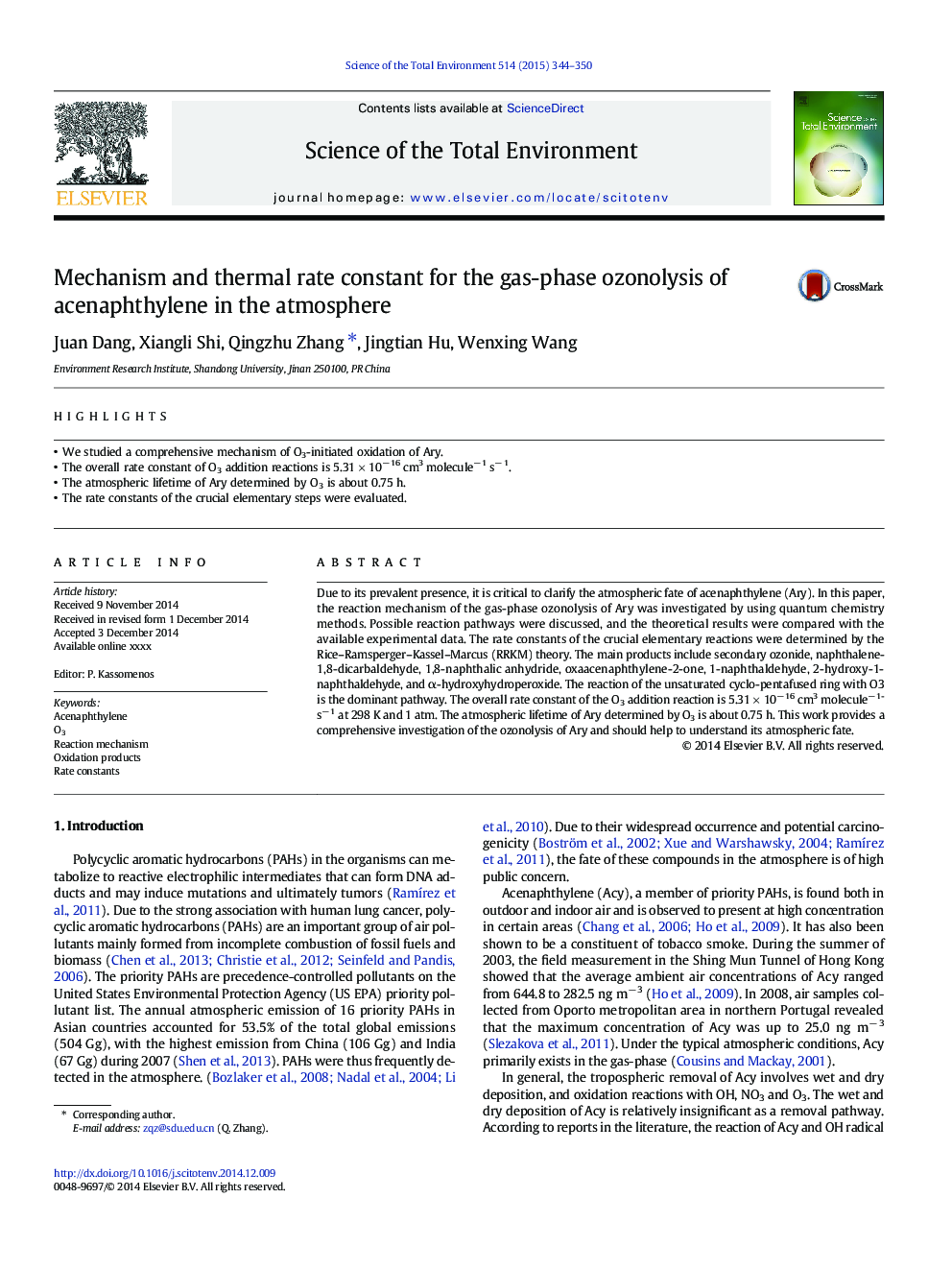| Article ID | Journal | Published Year | Pages | File Type |
|---|---|---|---|---|
| 6327077 | Science of The Total Environment | 2015 | 7 Pages |
Abstract
Due to its prevalent presence, it is critical to clarify the atmospheric fate of acenaphthylene (Ary). In this paper, the reaction mechanism of the gas-phase ozonolysis of Ary was investigated by using quantum chemistry methods. Possible reaction pathways were discussed, and the theoretical results were compared with the available experimental data. The rate constants of the crucial elementary reactions were determined by the Rice-Ramsperger-Kassel-Marcus (RRKM) theory. The main products include secondary ozonide, naphthalene-1,8-dicarbaldehyde, 1,8-naphthalic anhydride, oxaacenaphthylene-2-one, 1-naphthaldehyde, 2-hydroxy-1-naphthaldehyde, and α-hydroxyhydroperoxide. The reaction of the unsaturated cyclo-pentafused ring with O3 is the dominant pathway. The overall rate constant of the O3 addition reaction is 5.31 Ã 10â 16 cm3 moleculeâ 1 sâ 1 at 298 K and 1 atm. The atmospheric lifetime of Ary determined by O3 is about 0.75 h. This work provides a comprehensive investigation of the ozonolysis of Ary and should help to understand its atmospheric fate.
Related Topics
Life Sciences
Environmental Science
Environmental Chemistry
Authors
Juan Dang, Xiangli Shi, Qingzhu Zhang, Jingtian Hu, Wenxing Wang,
